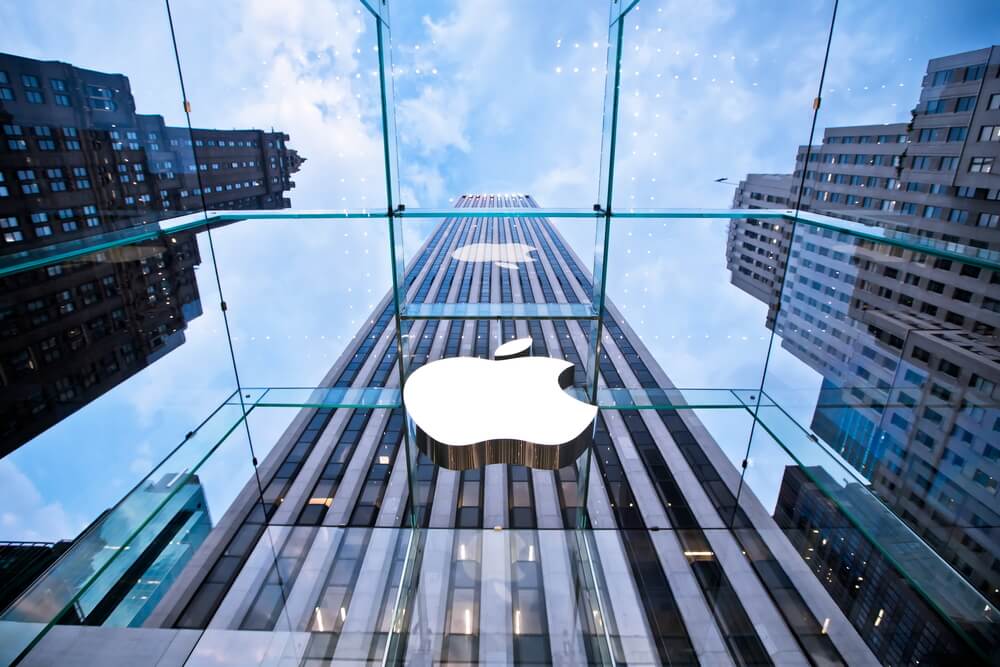Apple Primed to Win Against Australian Banking Cartel in Apple Pay Standoff

Despite its own reduced forecast led by stuttering sales in China, Apple is making gains. | Source: Shutterstock
A petition to collectively bargain and boycott Apple on Apple Pay by three of Australia’s “big four” banks is set to be dismissed by the Australian Competition and Consumer Commission (ACCC), the country’s antitrust regulator.
Fintech is all the rage and Australia’s big banks want in, by demanding access to Apple’s in-house Apple Pay platform with their own terms.
The Commonwealth Bank, the National Australia Bank and Westpac are three of Australia’s ‘big four’ banks complaining that Apple is barring them from gaining access to its Apple Pay platform, after negotiations between the banks and the tech giant fell apart earlier this year.
The other ‘big four’ bank, the Australia and New Zealand Banking Group (ANZ) has struck a deal with Apple and is already seeing the benefits of partnering one of the world’s leading mobile platforms. Within four days of launch, the ANZ Apple Pay microsite reportedly clocked 61,000 unique visitors, while web traffic to ANZ’s website went up 6%. Stringent confidentiality measures do not reveal the actual number of ANZ customer’s debit and credit cards pinned onto Apple Pay. Suffice to say, the interest generated by financial applications via Apple pay has the other big banks scrambling to renegotiate with Apple, which has the biggest smartphone market share in Australia.

For its part, Apple has submitted its reasons arguing against the banks’ collusion to bargain and even boycott the California-based tech giant. Apple notes that banks are free to develop their own iOS apps, confirming that the banks have not agreed to Apple’s terms about Apple pay. Apple’s biggest argument is for its users’ privacy, noting that third parties should sync to its digital wallet platform in the fear that such access would fundamentally undermine customer privacy and security.
Under Australian law, banks can form cartels, with permission from authorities and in this case, the three big banks along with a number of other smaller financial institutions amount to two-thirds of the Australian credit card market. Their proposed boycott if Apple doesn’t come to terms with their demands for access, would see Apple Pay shunned for up to three years from their customers.
About the Money or the Tech?
It has been claimed that ANZ, the only big bank that did strike a deal with Apple, is sharing a portion of the traditional interchange fee charged during a payment or a transfer. The other banks are at an impasse with apple about the fees charged by Apple for transactions made through Apple pay. This is one of the main sticking points in the standoff.
The other argument from the banks toward forming a cartel is their lack access to the NFC (Near-Field Communication) controller in iPhones, which Apple has steadfastly refused to grant access to. Developing their own NFC-compatible wallets would pit their apps in direct competition with Apple Pay, which has resulted in yet another impasse.

In light of the details, ACCC chairman Rod Sims told Reuters this week that if the banks’ reasons for forming a cartel is for the fees, they are unlikely to win the case. This notion is, as things stand, the preliminary decision determined by the regulator, which would mean the banks’ request to collude and bargain against Apple is destined to be denied.
Still, the decision was “finely balanced” Sims said and could be reconsidered if the banks made a telling argument for access to Apple’s NFC infrastructure.
The final ruling by the regulator is due in March and could have a telling effect on the advent of banks’ relationship with disruptive financial technology. If Apple is threated with a shut-out against a majority of Australia’s banks, perhaps it could look closer to its own platforms for solutions.
Previously alleged Australian banking cartels have been cleared of colluding against disruptive new technologies like bitcoin, by allegedly denying fundamental banking services to bitcoin startups.
Meanwhile, Apple is also seeing a similar collective petition against its policy of preventing third parties with access to its NFC technology in South Korea, by a number of Fintech firms.
Images from Shutterstock.